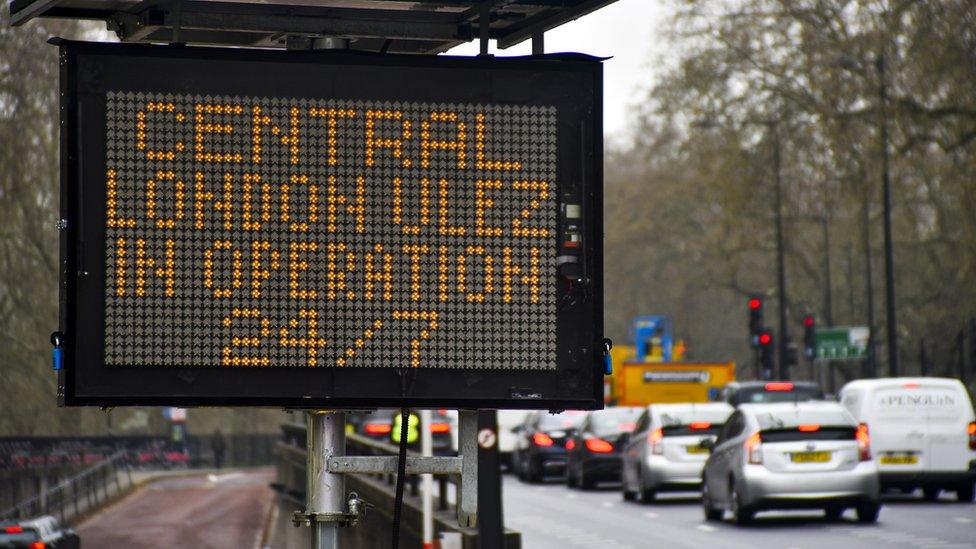Air pollution causes harm at all stages of life - report
- Published
- comments
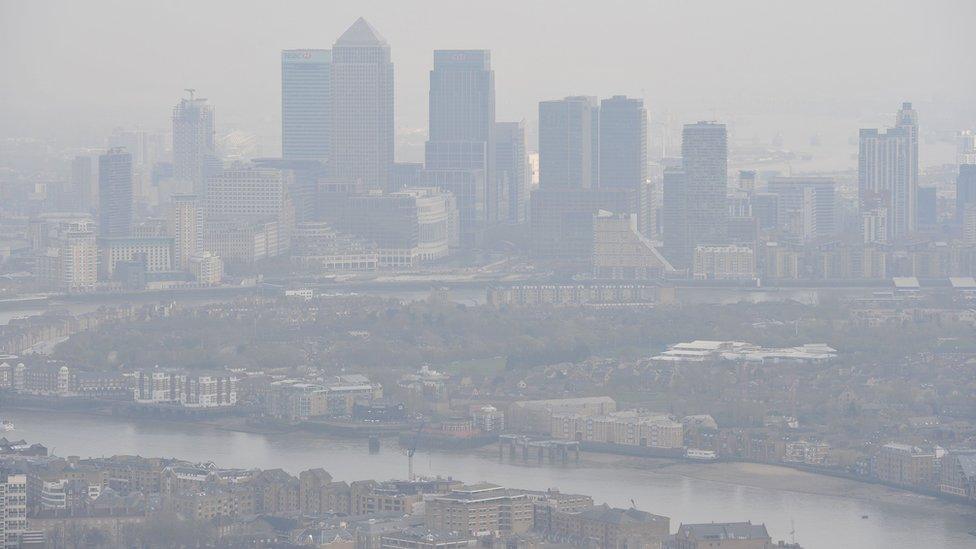
The team from Imperial's Environmental Research Group looked at evidence from more than 35,000 studies over 10 years
Air pollution causes harm to people at all stages of life, researchers from Imperial College London have found.
The report, commissioned by the Greater London Authority, found exposure to certain particles could lead to miscarriages, cause low sperm count and stunt children's lung growth.
Later in adulthood, it could also cause chronic illnesses, cancer and strokes.
In response, the government said it fully understood the importance of improving air quality.
The team from Imperial's Environmental Research Group looked at evidence from more than 35,000 studies over 10 years, external.
As part of the research, the team looked at studies from the World Health Organisation (WHO), the UK Committee on the Medical Effects of Air Pollution (COMEAP), the Royal College of Physicians (RCP), the Health Effects Institute, and the International Agency for Research on Cancer (IARC).
'Harms foetal development'
The review found air pollution harmed foetal development during pregnancy and could cause low birth weight and miscarriages, as well as a low sperm count in men.
It also found air pollution could stunt lung growth in children, cause asthma, and affect blood pressure, cognitive abilities and mental health.
Researchers identified particulate matter (PM2.5) and nitrogen dioxide (NO2) - both of which come from vehicle exhausts - as particularly harmful.
There was no evidence to identify a threshold where PM2.5 did no harm, and even those living in the least polluted suburbs of London were affected, they said.
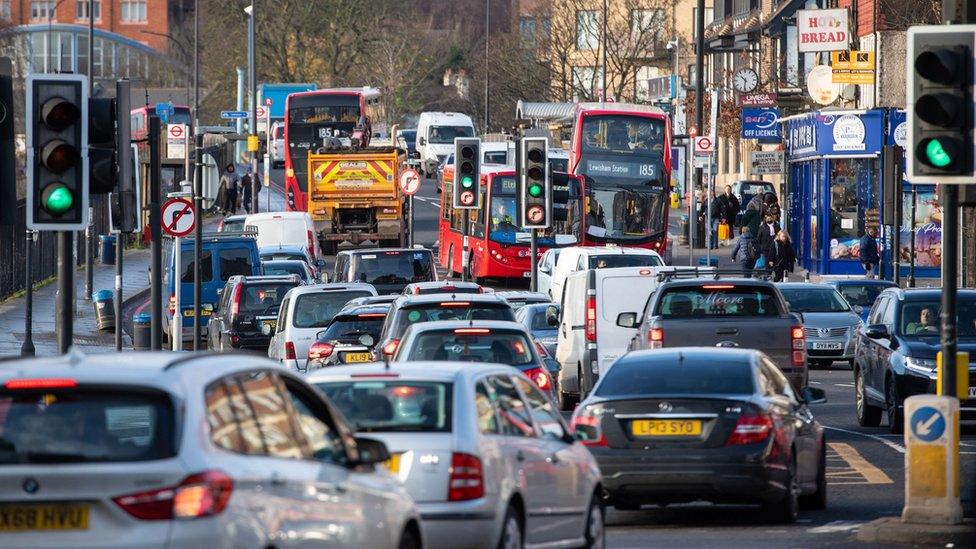
It comes after the death of Ella Kissi-Debrah, who lived near the South Circular and had air pollution listed as a cause of death
The authors wrote: "While headline figures on the health impact of air pollution focus on the equivalent number of premature deaths, the wider impacts are hiding in plain sight in the contribution of air pollution to the burden of chronic diseases."
In 2018 Public Health England (PHE) estimated that up to 43,000 people a year are dying in the UK because of air pollution and that it could cost the country as much as £18.6 billion by 2035, external unless action is taken.
The authors of the current research said: "Policies should be aimed at reducing the accumulating harm from air pollution and the health degradation, in addition to protecting people who have become vulnerable to current pollution concentrations."
The government has launched a consultation on its draft Air Quality Strategy, external which closes on 21 April.
A spokesperson from the Department for Environmental, Food and Rural Affairs (Defra) said: "We fully recognise the importance of improving air quality and our Environmental Improvement Plan sets the action we're taking to drive change and meet our strict air quality targets.
"We are encouraging councils to use their existing powers and responsibilities more effectively, and are now consulting on a revised Air Quality Strategy to support them."
Ongoing controversy
The findings come amid ongoing controversy over the Mayor of London's plan to expand the Ultra Low Emissions Zone (ULEZ) from 29 August.
The current scheme covers all parts of city between the North and South Circular roads, but Sadiq Khan previously announced it would be expanded to cover the whole of the capital.
People who drive in the zone in a non-compliant vehicle will need to pay a daily charge of £12.50.
Five Conservative-led councils - Bexley, Bromley, Harrow, Hillingdon and Surrey - launched legal action over the plans, and the High Court allowed the case to proceed on two out of five grounds of their appeal.

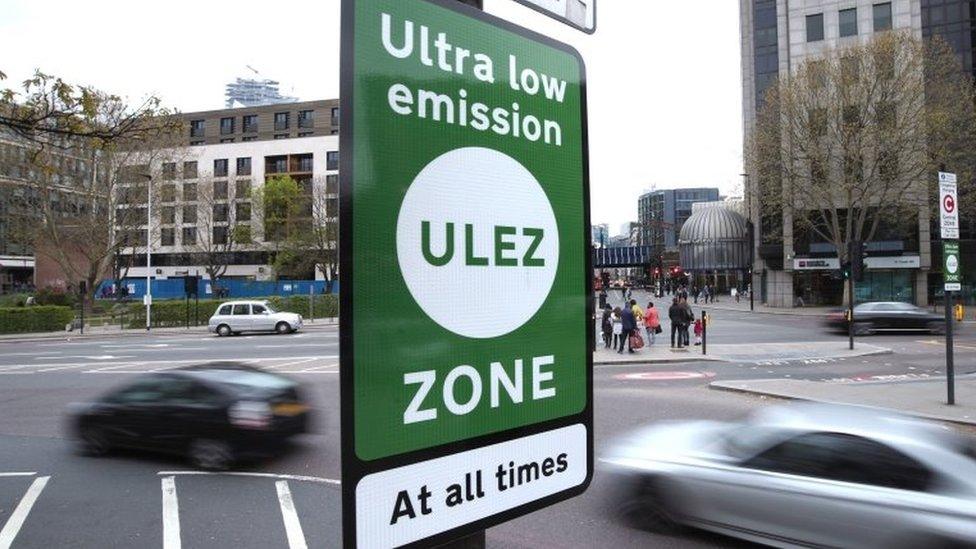
The findings come amid ongoing controversy over the Mayor of London's plan to expand the Ultra Low Emissions Zone
Analysis - Tom Edwards, Transport Correspondent
This is a summary of what scientists have been warning for years - pollution can have serious health consequences over a lifetime. It's pretty grim reading, with impacts ranging from strokes to mental health issues.
Crucially, the summary says there is no safe level of pollution and suggests that in London even those who live in areas of low pollution could have their health affected.
The Mayor says this shows his expansion of ULEZ in August is the right course, but the expansion has seen vocal opposition.
However it's questionable whether the summary will change minds - opponents of ULEZ expansion as a policy think it is being introduced too quickly, there isn't enough mitigation and the improvements to air quality are not worth the cost.
Certainly, it will not draw a line under ULEZ expansion.

It also follows the death of nine-year-old Ella Kissi-Debrah from Lewisham in south-east London, who was the first person to have air pollution listed as a cause of death at an inquest in the UK.
At the conclusion of Ella's inquest in 2020, coroner Philip Barlow said she had been exposed to excessive levels of pollution before she died.

Follow BBC London on Facebook, external, Twitter , externaland Instagram, external. Send your story ideas to hellobbclondon@bbc.co.uk, external
- Published14 April 2023
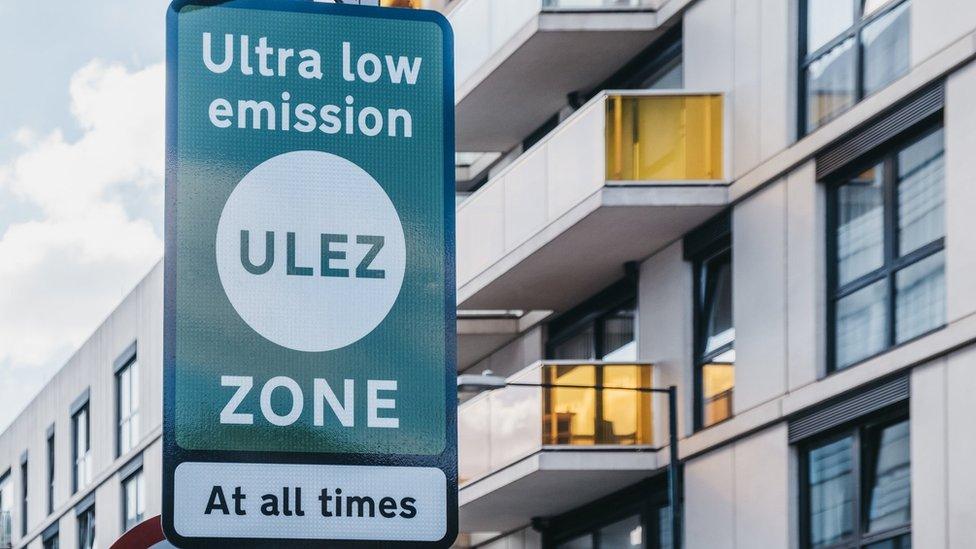
- Published12 April 2023
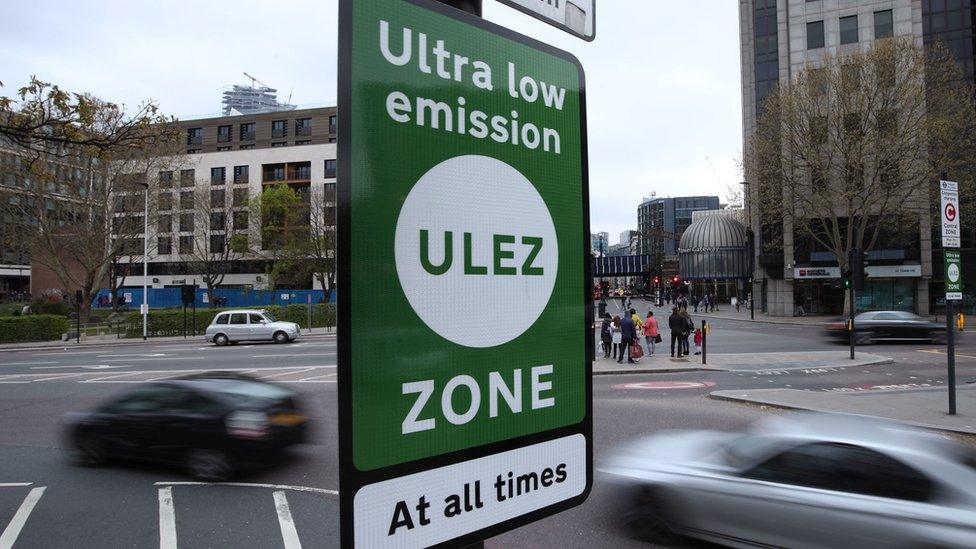
- Published4 August 2023

- Published25 November 2022
